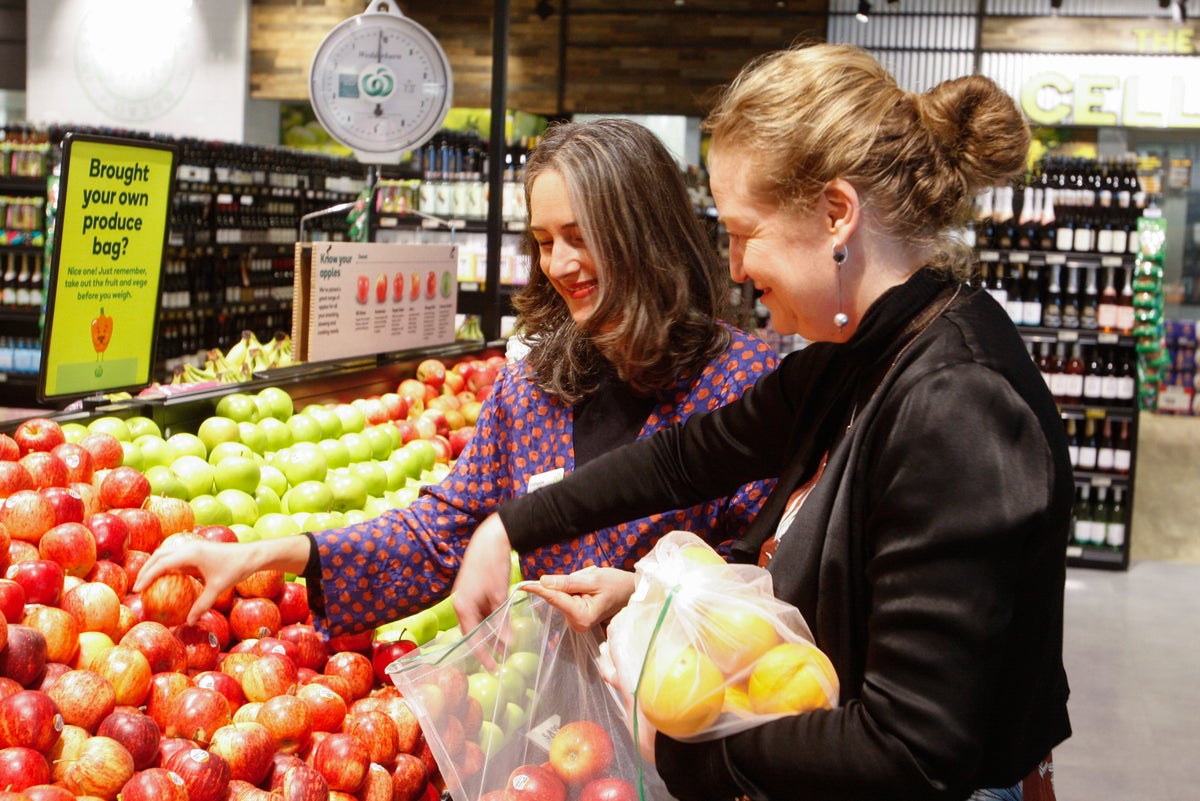
New Zealand has become the first country to implement a ban on thin plastic bags commonly used by supermarket customers to collect fruit and vegetables.
The new ban, which went into effect on Saturday, will also extend to plastic straws and silverware, as the government expands its campaign against single-use plastics which account for half of the plastic produced every year globally.
“The manufacture, sale or distribution of single-use plastic produce bags, and plastic plates, bowls and cutlery is banned,” the government said.
However, supermarkets, pharmacies, hospitality venues and health and disability services are still allowed to sell and provide plastic straws to people with disabilities who need the straws.
Customers in New Zealand have been bringing their own reusable tote bags to stores for carrying purchases since take-home plastic bags were banned in 2019.
Officials estimate that on average, each New Zealander sends more than three quarters of a ton of waste to landfills every year.
“New Zealand produces too much waste, too much plastic waste,” said associate environment minister Rachel Brooking.
Ms Brooking said the 2019 bag ban had already prevented more than 1 billion plastic bags from being used in New Zealand, and the new ban on thin bags would add a further reduction of 150 million bags per year.
Ms Brooking said the emphasis would be on educating people to not use plastic bags but that officials could impose penalties on businesses that choose to flout the rules.
The government website said all businesses are “legally obligated to comply with the regulations” and that the ministry for the environment will first work with businesses to ensure they understand the rules.
“We will take enforcement action where appropriate, particularly where systemic or ongoing non-compliance occurs,” a ministry release said.
The Countdown chain of supermarkets has begun selling polyester mesh bags that can be washed and reused.
Plastic trash and waste in the water of the world’s oceans— (Getty Images/iStockphoto)
New Zealand began efforts to minimise plastic use in 2019, when it banned thicker plastic shopping bags that customers used to carry grocery items home.
Before extending the ban, officials investigated concerns the latest ban wouldn’t help the environment much if customers simply switched to using disposable paper bags to collect their fruit and vegetables.
“The answer was still yes, it’s still worth doing this, but we really want to reduce single-use anything packaging,” Ms Brooking said. “So we want people to be bringing their own bags, and supermarkets are selling reusable produce bags.”
Globally, around 300 million tons of plastic is produced each year, half of which is for single-use items.
Plastics never fully break down – they just turn into smaller plastic pieces which enter waterways and food consumed by humans.







